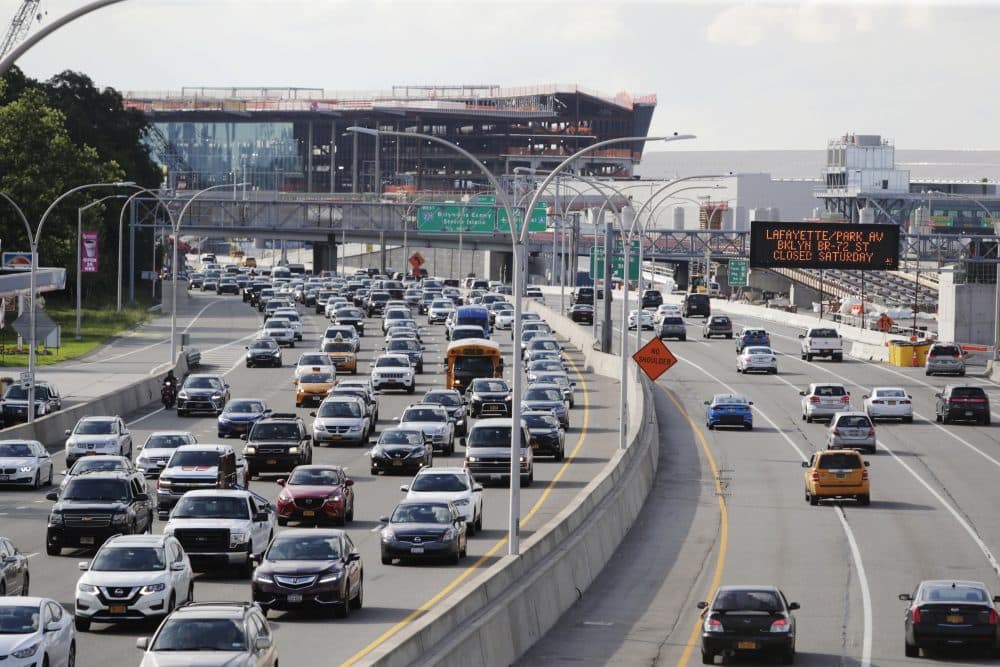Advertisement
Commentary
Fuel Economy Be Damned

The Environmental Protection Agency may have a new administrator, but Trump’s intent to unravel the climate policies of the Obama administration is evidently unchanged.
With the announcement of weakened automobile fuel economy standards (i.e., the Corporate Average Fuel Economy law known as the CAFE standards) and the move to revoke California’s right to mandate the sale of electric vehicles, the administration has again demonstrated its affinity for big business and its contempt for federal action to limit emissions that lead to climate change. The Washington Post calls it "one of the biggest regulatory rollbacks of the Trump presidency."
It's estimated that this rule change will result in Americans consuming at least 500,000 more gallons of gas per day.
The voluminous and arcane CAFE standards have been in the crosshairs of the administration’s small-government ideologues since Trump took office. Prior to that, lobbyists for the automakers had already won some concessions that made the rules more flexible, most notably a mechanism that lowers gas mileage requirements for carmakers whose sales are skewed toward trucks and SUVs.
Behind the facade of consumer interests is a deregulatory agenda to ... “deconstruct the administrative state.”
More recently, the auto industry’s top goal has been the elimination of waivers that allow some states, led by California and including Massachusetts, to enforce stricter air quality rules and to require a percentage of vehicles sold to be emission-free.
Trump aims to give the automakers what they’ve asked for — and more.
To do so, the EPA and the Department of Transportation had to come up with a story to sell the rules change to the public and, crucially, to the courts. They’re claiming that sticker price increases on new vehicles, due to the tighter standards, would deter people from trading in their older models that are less safe and pollute more. They say that lighter cars are more dangerous in a crash. And they argue that when cars get better gas mileage, people drive more miles, thereby canceling out the improvements in efficiency.
All of these arguments will be challenged in court. For every study cited by the administration, opponents of the rollback have refuting data. But this isn’t fundamentally about safety or affordability. It’s not genuinely about mitigating pollution or getting older vehicles off the road.
Behind the facade of consumer interests is a deregulatory agenda to loosen the reins on industry and “deconstruct the administrative state.”
The “America first” mantra and the goal of “energy dominance” inform a policy that puts the highest premium on economic growth while discounting environmental and social impacts. Transportation and energy have been particularly fertile fields for Trump’s regulatory assaults. In a visit to Detroit just days after his inauguration, he told automakers that environmental rules were “out of control.”
Coupled with the zeal to deregulate, is the administration’s utter disdain for measures aimed at mitigating climate change. The CAFE rollback is the third installment of the trilogy that began with the quashing of the Clean Power Plan and continued with the withdrawal from the Paris Agreement.
It’s scandalous that the Trump administration would even contemplate changes that will lead to emitting an additional 37 million metric tons of greenhouse gases annually by 2025. They’re not just failing to show leadership on climate change — they’re adopting policies that will worsen it. A look at how other nations are addressing climate and transportation issues provides a sharp contrast.
At today’s gas prices, one estimate puts [the windfall for the petroleum industry] at a hefty $600 billion.
For example, in the Netherlands, all new cars sold must produce zero emissions starting in 2030. In Norway, they’re aiming to stop selling new gas and diesel cars by 2025. France and the UK have set 2040 as the last year of gas and diesel sales. In Germany, they’re already restricting diesel vehicles from certain areas. India says only electric cars will be sold starting in 2030. And most significantly, China is working on plans to phase out cars that burn fossil fuels — they expect to have five million electric vehicles on the road by 2020.
As the northern hemisphere swelters through record heat waves and wildfires burn in the Arctic, governments around the globe are acting decisively to reduce their output of greenhouse gases by electrifying transportation.
But the Trump administration is inducing cars and trucks to burn more fuel, produce more toxic pollutants and emit carbon at levels above those previously endorsed by the automakers. As other nations rapidly move away from fossil fuels, the profitable U.S. market remains captive to the American consumer’s appetite for capacious SUVs that burn our cheap and plentiful gas. The auto industry is now beset by legal uncertainties and schisms in the global market.
The one clear winner is the petroleum industry. How big is their windfall from increased gasoline consumption between 2020 and 2040? At today’s gas prices, one estimate puts it at a hefty $600 billion.
The Koch brothers are smiling.
